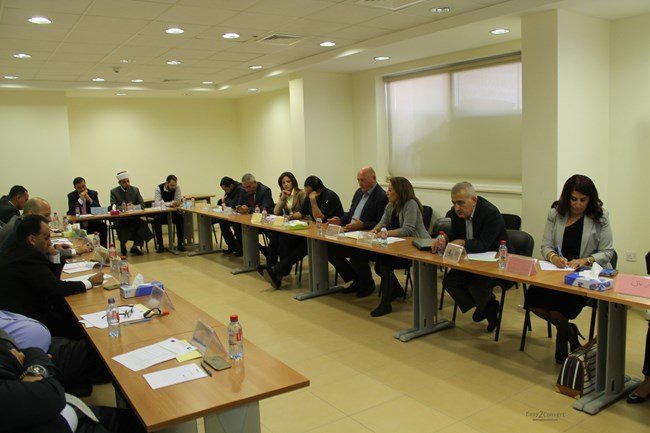Image:

19 Nov 2016
The Jordan Media Institute (JMI), in cooperation with the Counter-Extremism Unit at the Ministry of Culture, organized a workshop titled "Communication To Counter Extremism," with the support of the European project "Technical Support for the Efforts of the Jordanian Government (Ministry of Culture) To Prevent Violence and Extremism." The workshop included two sessions, in which experts presented working papers on the role of digital and traditional media in spreading extremism, ways to protect society in this domain, and the role of Jordanian legislation in reducing the spread of hate speech and extremism online.<br />
<br />
Christoph von Harsdorf, team leader of the European project, stressed the importance of the workshop, which is part of specialized workshops that support the project. He pointed out that these workshops aim at developing ideas to include them in the National Strategy for Countering Extremism. He underlined the important role of the media in forming reality and conveying meanings.<br />
<br />
For his part, Dr. Basim Tweissi, dean of JMI, stressed the importance of media and information literacy in protecting society and new generations from the negative effects of the media, specifically in the age of digital media and the huge flow of information in light of the growing threats of deception, political propaganda, and using media platforms for spreading extremism and terrorism. At the same time, professional media is working to renounce extremism and promote cultural and social integration and protection of society. Tweissi added that extremism is associated with general behavior and the decisions made by young people. He stressed the importance of local community radios in the governorates, which address a small community and tackle local issues in every governorate.<br />
<br />
Major General Sharif Omari, director of the Counter-Extremism Unit, which is affiliated with the Ministry of Culture, spoke about the need for finding an urgent solution to the problem. He said that the National Strategy for Countering Extremism and Terrorism must highlight the roles of the public sector, private sector, and civil society. The strategy must promote efforts pertaining to awareness-raising and addressing the root causes of extremism. He underlined the importance of the workshop in highlighting the positive role of the media in handling extremism.<br />
<br />
Yasar Durra, director of training at JMI, spoke about international examples that explain the relationship between media and extremism and hate speech. He cited Rwanda and the Balkans and the impact of the traditional press and media on the war at the time. He highlighted the key role of radio stations in mobilizing the public since they reach hundreds of thousands of members of the public from all groups.<br />
<br />
Dr. Sakher Khasawneh, teacher at JMI, spoke about the role of Jordanian legislation in limiting the spread of hate speech and extremism via the Internet. He said that Jordanian legislation is adequate and stipulates severe penalties. He referred to some proposals, such as separating crimes of extremism from crimes of freedom of opinion and expression and crimes of terrorism that involve criminal actions.<br />
<br />
Rania Abdulla, who works at the research unit at JMI, presented a working paper in which she spoke about a case study on social media and Daesh rhetoric, as well as ways to recruit young people via social media, particularly Twitter. She pointed out that the danger lies in the fact that most combatants of the terrorist organization, Daesh, are young people who were born in the age of computer, Internet, and social media networks and who handle these tools very well. <br />



